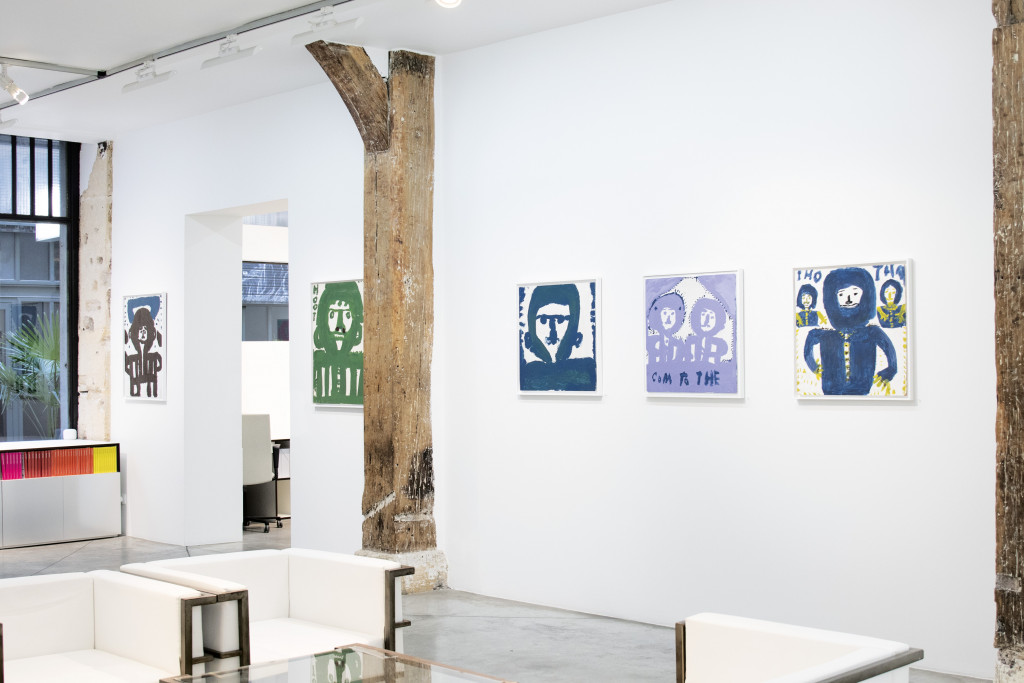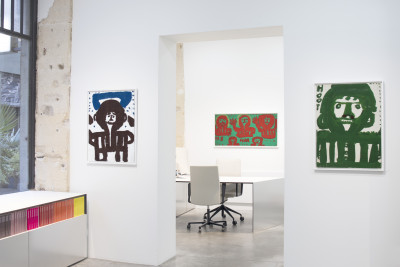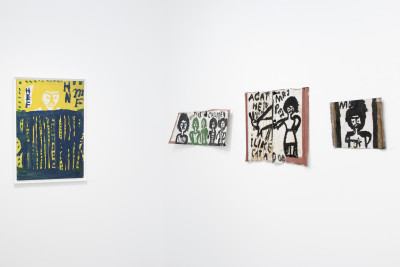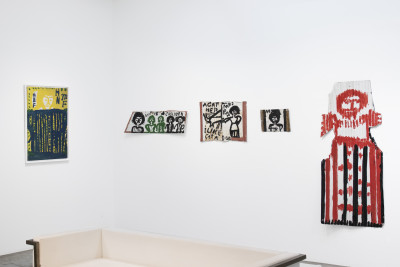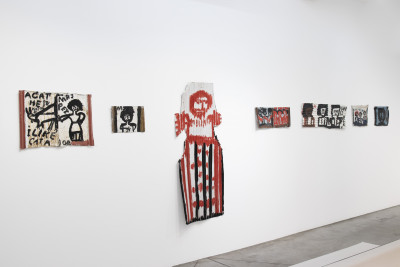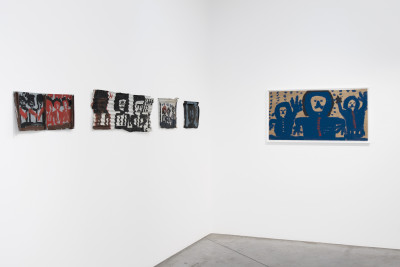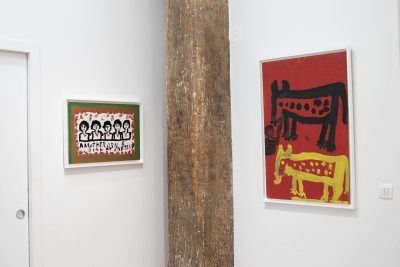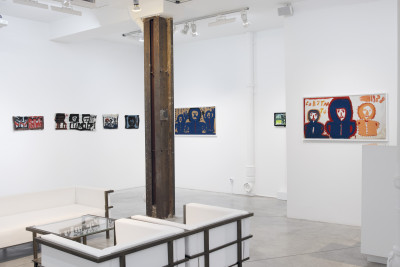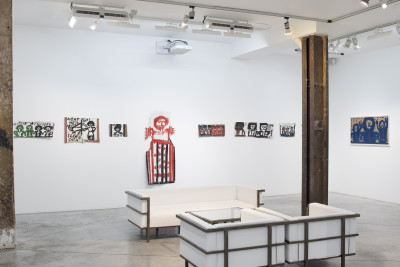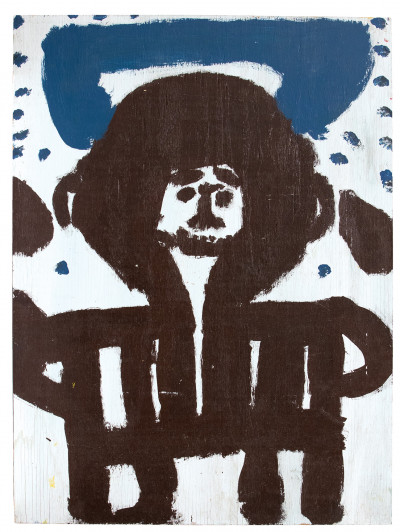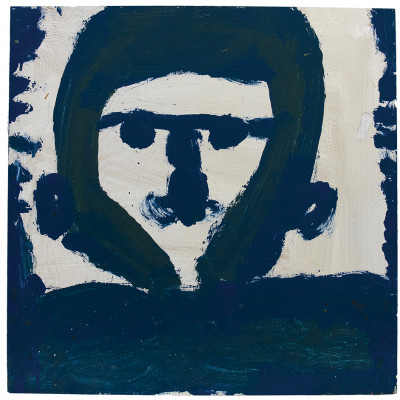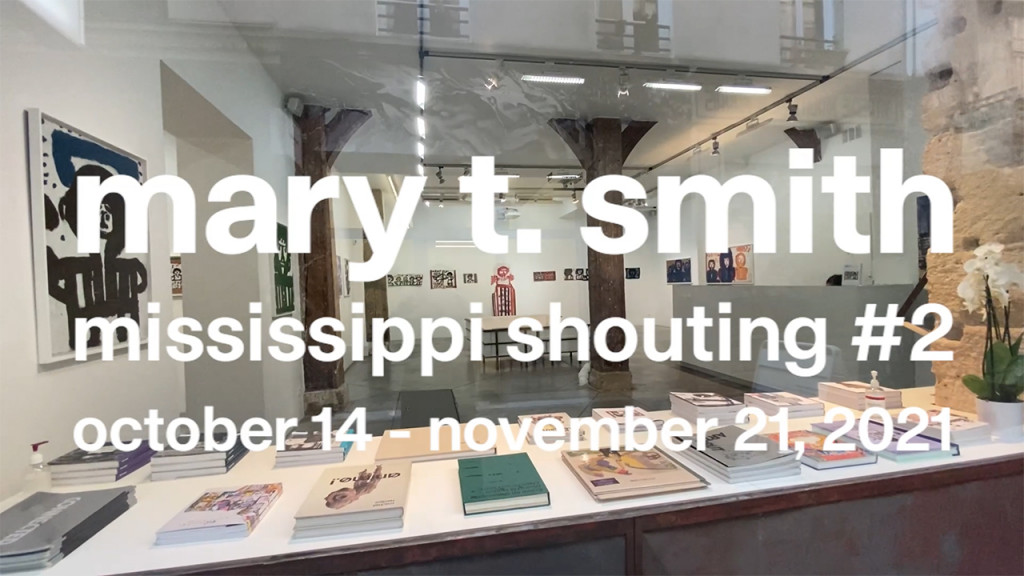Mary T. Smith :
Mississippi shouting #2
The story of Mary Tillman Smith is that of a poor child from Mississippi who, in the twilight of her life, began work that was admired very early on by Basquiat, and that now features in the collections of the most prestigious museums, including the Metropolitan Museum (New York), the National Gallery of Art (Washington), the High Museum of American Art (Atlanta), the Smithsonian Museum (Washington), and the Musée National d’Art Moderne (Paris).
Mary, born in 1904 into a family of sharecroppers in Martinville, Mississippi, suffered from a hearing impairment which, by isolating her very early, developed in her a creative rage coupled with an unparalleled capacity for resistance. Condemned to work in the fields from a very early age, this child was already drawing strange pictures in the earth accompanied by sibylline texts. But it was not until the twilight of her life that she began to give shape to her personal cosmology by painting on metal sheets and wooden panels placed on and around her modest bungalow. By establishing this particular relationship with the world, by calling out to passers-by in this way, she invented a kind of graphic blues in which art becomes the intercessor par excellence of forces beyond her control.
For, at the same time as recovering her own dignity, she rids art of conventional stances and makes it a manifesto: a manifesto that is violently positive and, despite some religious themes, even subversive. This “solar aesthetic”, as Daniel Soutif calls it, provokes a form of primal oscillation between the human and the divine that takes us back to the deep roots of creation.
Mary T. Smith, who died in 1995, left behind several hundred paintings of exceptional elemental power, which have earned her recognition today as one of the leading figures in American art brut.
A poor child of Mississippi condemned to the hardest work, this African-American woman began, at the dawn of her life, a work that resembles a real graphic blues. Mary T. Smith gave shape to her personal cosmology by painting on sheets of corrugated iron and wooden panels
arranged around her house. Her “solar aesthetic”—says Daniel Soutif—and her powerfully elementary modes of representation made a strong impression on Jean‑Michel Basquiat. Now considered an emblematic figure of American art brut, her works have been added to the Metropolitan Museum of Art (New York), the Smithsonian Museum of American Art (Washington) and the High Museum of Art (Atlanta) collections.
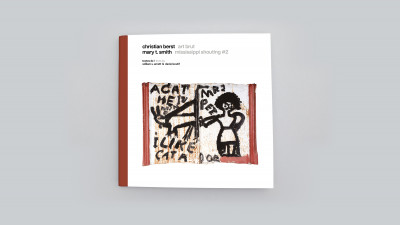
Texts : William S. Arnett & Daniel Soutif
Foreword : Christian Berst
Catalog published to mark the exhibition mary t. smith : mississippi shouting #2, from October, 14 to November 21, 2021
